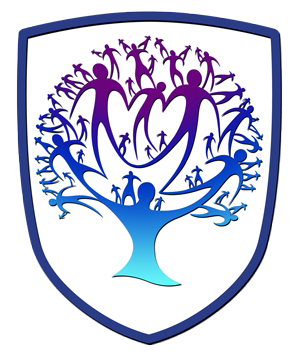Click here to access the Textiles Learning Journey for Year 7 – 11
| Year | Term 1 | Term 2 | Term 3 |
|---|---|---|---|
| Year 7 (9 week rotation) | Illuminated Manuscript inspired project: - Understanding the importance of Health and Safety - Researching information around a topic - Designing products to suit a theme - Learning how to use a sewing machine - Learning skills through the use of a sewing machine - Producing a product to meet a given theme - Trying to be independent in their learning - Use of knowledge organiser and testing of understanding |
||
| Year 8 (9 week rotation) | Pablo Picasso inspired project: - Researching information around a topic - Designing products to suit a theme - Developing and improving skills in textiles from those learnt in Year 7 - Producing a product for a specific theme - Developing independence in their learning - Use of knowledge organiser and testing of understanding |
||
| Year 9 (2 x 9 week rotations) | First 9 weeks (of an option subject chosen in Year 8) Skills and techniques used in textiles: Students will - Further develop their knowledge of Health and Safety - Learn about and practise a range of techniques that they could use to make a product in order to build up a portfolio of evidence - Evaluate the strengths and targets throughout the production of a range of different embellishment techniques - Investigate and attempt the nine heads method for fashion drawing - Further improve their independence when completing work in textiles Second 9 weeks (of an option subject chosen in Year 8) Product Production: Students will - Further develop skills learnt and practised in first rotation - Independently manufacture a product using the techniques they learnt and practised in the first rotation - Increase and improve independent learning - Evaluate the strengths and weaknesses of their work throughout Work completed throughout the year will be used as GCSE evidence if they select textiles as an option in Year 10. |
||
| Year 10 | Eduqas GCSE Art & Design Textiles Unit 1: Skill building - students will undertake research, development as well as practical tasks in order to further develop their skills and understanding of textiles. Students will research a number of different textile artists and use these to develop their practical skills in replicating their own versions of the artists work (transcriptions). They will develop and refine their work to manufacture a product that uses at least four different pieces of artists work. Through the manufacture of the product they will not only develop skills in different techniques, but also understand how to use a commercial pattern and instructions to manufacture a product. They will begin a personal investigation, and combined together this work will equate to 60% of the overall qualification. Throughout all projects students will do the following; Surface embellishment, joining fabrics, fabric manipulation, recycling fabrics & other materials, use of technical materials, applying fastenings, functional and decorative edge finishes, construction techniques, critical & contextual studies, primary research skills such as photography and first hand drawing. Project 1: Artist Research - Students will investigate a variety of different textile artists who specialise in different embellishment techniques such as applique, embroidery, printing, patchwork etc. They will use these to develop their practical skills by manufacturing their own versions of the artists work (transcriptions) based on a chosen theme from a given list. For each artist they will design a product in the artist’s style. Project 2 - Product Manufacture Students will use their design work from the artist research to design a tote bag which showcases the work of at least two of the artists they have researched. This will help them to understand how to use a commercial pattern and instructions in order to manufacture a textile product. Project 3 - Personal Investigation This project will start in Year 10 and be completed in the Autumn term of Year 11. Students start with the theme of nature for this key project, and will complete a homework task from October through to February of taking five nature inspired photographs each week. They are encouraged to then decide on a further theme within nature which they will develop into a full GCSE project. This will further enhance their portfolio of work. They will need to complete all the required elements for the GCSE assessment objectives within their personal investigation, working independently throughout. |
||
| Year 11 | Project 3: Completion of Personal Investigation & Portfolio - Equates to 60% of overall qualification. Unit 2 – Practical Examination Students will be given a range of questions by the exam board. They will choose one of the questions to research, design & develop a final outcome. The final outcome will be completed over 10 hours in exam conditions. Equates to 40% of overall qualification. |
||

